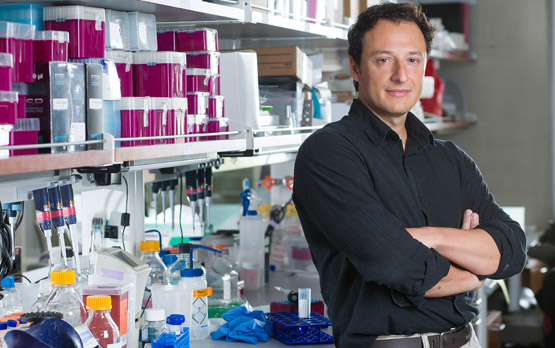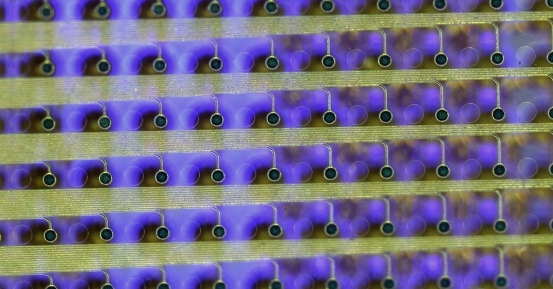
UC San Diego Research Funded By CIRM to Identify Potential Autism Drug Targets
By:
- Debra Kain
Published Date
By:
- Debra Kain
Share This:
Article Content
A researcher at the University of California, San Diego School of Medicine is among principal investigators at 10 California institutions receiving Early Translational IV Research grants, totaling $40 million, approved today by the governing board of the California Institute for Regenerative Medicine (CIRM) at its meeting in San Diego.
Alysson R. Muotri, PhD, assistant professor of pediatrics and cellular and molecular medicine, will receive approximately $1.85 million for his research using induced pluripotent stem (iPS) cells, with the aim of identifying novel small molecule drugs with the potential to treat autism spectrum disorder.
“This project is based on the hypothesis that astrocytes, one of the main support cells in the central nervous system, play an important role in the formation and function of neural connections,” said Muotri.
Astrocytes will be obtained by in-vitro differentiation of iPS cells derived from patients with autism spectrum disorder. Muotri and colleagues did something similar in 2010 when they used iPSCs from patients with Rett syndrome to create the first functional human cellular model for studying the development of autism spectrum disorders.
“This work is important because it puts us in a translational mode,” Muotri said. “It helps expand and deepen our understanding of autism, from a behavioral disorder to a developmental brain disorder. We can now look for and test drugs and therapies and see what happens at a cellular and molecular level.”
Autism spectrum disorders (ASD) are complex neurodevelopmental diseases that affect about 1 percent of children in the United States. Such diseases are mainly characterized by deficits in verbal communication, impaired social interaction, and limited and repetitive interests and behavior. Rett syndrome is a neurological disorder in which affected children display normal development until around six to eighteen months, after which physical and behavioral symptoms begin to emerge - from low muscle tone and progressive motor dysfunction, to diminished or disappearing socialization abilities. It is one of the most aggressive forms of autism.
“We plan to create a model of the early stages of ASD, and test whether drugs have differential effects in iPSC-derived astrocytes,” said Muotri. “In that way, we can hopefully begin to unravel how genetic variation in ASD dictates responses to different drugs.” Insights that emerge from these studies may not only drive the development of new therapeutic interventions for ASD, but also potentially define a molecular signature which could predict the onset of disease before symptoms are seen.
The August 28 grant brings UC San Diego’s total to nearly $143 million in CIRM funding since the first awards in 2006.
Share This:
You May Also Like
Stay in the Know
Keep up with all the latest from UC San Diego. Subscribe to the newsletter today.



